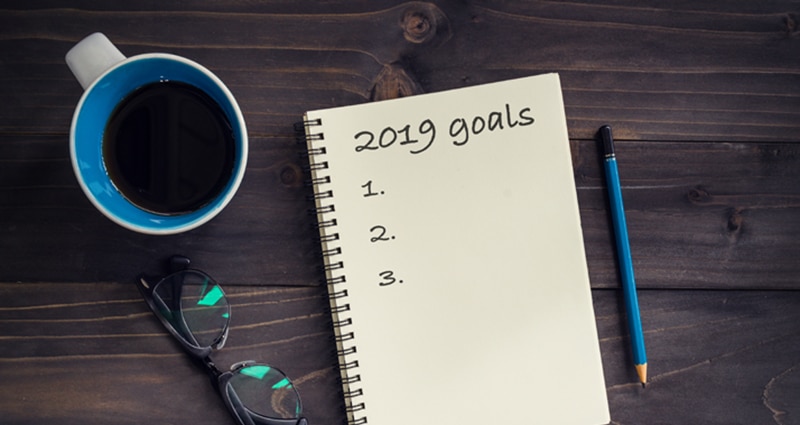One Simple Truth to Guide Your 2019

A striking number of people – myself being one of them – begin each New Year with a list of things they personally hope to accomplish over the next 12 months. Some call them resolutions, others simply goals. But no matter what you call them, there is one simple truth to help you achieve them. It is a truth so basic that it confounds me as to why it defies the common wisdom in our industry: No one else can make you better.
Before all the mentorship and culture zealots demand my excommunication from the aviation church or pull out the torches and pitchforks to slay the infidel, let me expand on this just a bit. No one doubts that organizations, cultures, and mentors play a role in our development. They encourage us, serve as role models, support us, and set conditions to allow us to grow. But at the end of that list sits each and every one of us who must consciously engage with – or subconsciously ignore– the call to get better.
The Time to Engage is Now
The New Year is a perfect time to develop this conscious engagement. Many of us have taken that vital first step: goal setting. But to achieve these laudable aspirations, we often have to change our mindset on what makes us better. Common myths abound:
We naturally get better with experience. This is only true if we seek to get better by rigorous and honest self-assessment – finding the smallest of errors and correcting them. Or seeing a new technique and practicing it until it becomes a part of our normal routine. These are conscious actions that must overcome our egos, apathy, and complacency.
Training will make me better. Training and learning are different things. For training to improve our performance, it must be taken seriously and internalized, and changes must be made to the way we do things, even how we think about how we do things. Repetition alone won’t do it, and in fact can bake in bad habits if we don’t root them out. And there is a reason why we don’t do this.
I’m already good enough. This is the toughest nut to crack. Humans have a natural tendency to view themselves as better than they really are. We don’t see the minor flaws (or major ones) and render ourselves impotent against backsliding. We tend to do this as a coping mechanism to avoid feeling negative about ourselves or our performance. In the absence of negative outcomes we tend to tell ourselves comforting stories about our adequacy or even excellence.
Turning Weaknesses Into Strengths
Personal mastery requires a thick skin and the relentless pursuit of weakness across all areas of our lives. It is hard work. It requires great courage. It is the mark of true Level III and Level IV Professionals, those who practice increasing levels of precision to grow where they are with the resources at hand (Level III), and upon reaching that level, give back to others as mentors and role models (Level IV).
Let’s set one more goal for 2019. Let’s embrace the simple truth that: If it is to be, it is up to me.
Happy New Year!

Convergent Performance is uniquely dedicated to reducing human error in high risk environments.
http://www.convergentperformance.com/
© 2025 Convergent Performance. All Rights Reserved.
Next ArticleRelated Posts

Navigating Geopolitical Uncertainty Using Business Aviation
Bigger business jets mean bigger fuel tanks, longer trips, more border crossings, and bigger wallets! With an equipment upgrade also comes the requirement for a knowledge upgrade.

Giving the Hazard Log the Attention It Deserves
Safety risk profile. Hazard log. Hazard risk register. Whatever you call it internally, one thing is clear: It is a fundamental requirement in your safety management system.

